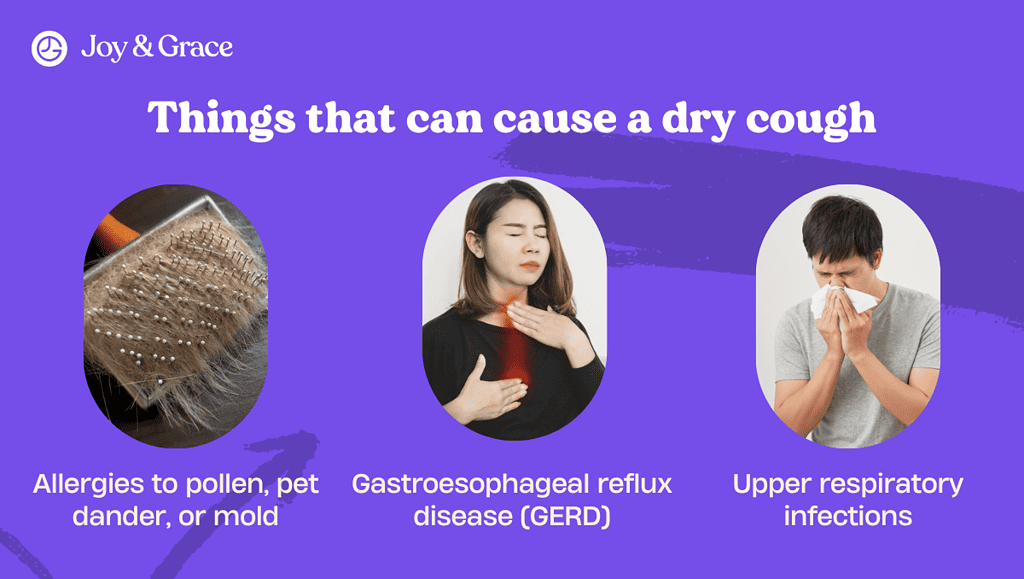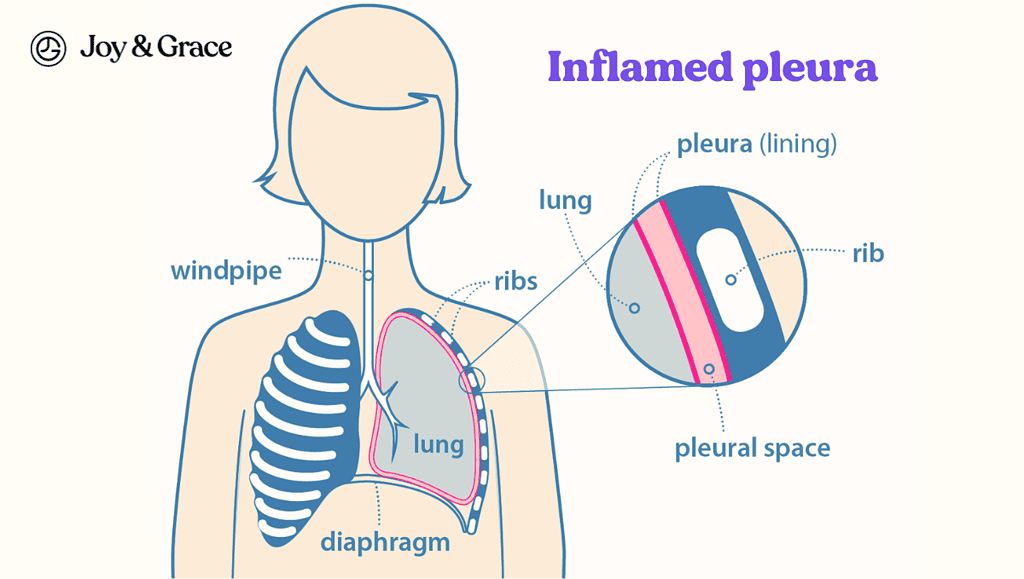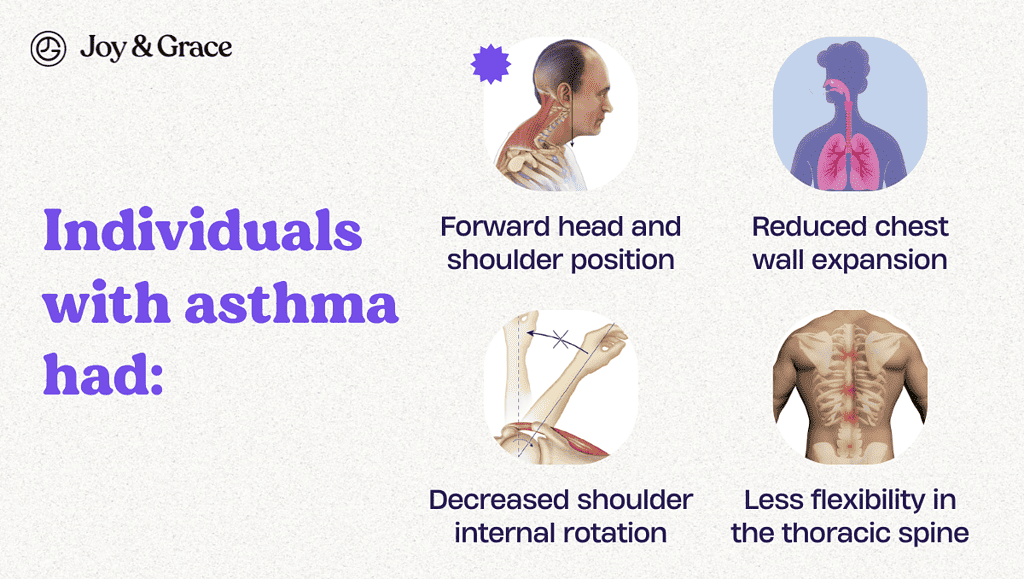Are you experiencing a dry cough accompanied by neck and shoulder pain?
Dive into the fascinating connection between these symptoms. Uncover the underlying mechanisms, such as muscle stress, infections, and pleurisy. Explore how conditions like Sjögren's syndrome, asthma, GERD/LPR, and COVID-19 can contribute to shoulder pain. Discover when seeking medical treatment for persistent cough and shoulder discomfort becomes crucial. Get useful information to help you manage your symptoms and improve your health.
Can a Dry Cough Cause Neck And Shoulder Pain?

A dry cough can cause neck and shoulder pain, and it can do so with various mechanisms.
For one, dry coughs can lead to neck and shoulder pain because of repeated forces and stress. This can make the muscles hurt and swell as well. As a result, you may find it hard or painful to move your shoulder. If the coughing is strong enough, just the force of the cough alone can cause pain.
Coughing involves forcing a lot of air in and out of the neck and throat. Because of this, people with frequent dry cough may also feel dryness in the throat and voice box. This can make your neck hurt and feel sore.
Furthermore, when the underlying condition causing the dry cough is an infection, it's important to note that infections are well-known to cause various types of joint pain.
This includes pain in the neck, shoulders, and other joints. Infections can cause inflammation in the body, which can cause pain and swelling in the joints. So, the infection causing the dry cough could also be causing pain in the neck and shoulders.
Finally, pleurisy is another way dry coughs could be linked to neck and shoulder pain. We’ll talk about this one separately later on.
Dry coughs are those that produce no mucus (phlegm). There can be many things that cause a dry cough. Among them are:
- Allergies to pollen, pet dander, or mold. These can cause an itchy throat and a dry cough.
- Gastroesophageal reflux disease (GERD). It can also cause a sore throat and a dry cough.
- Upper respiratory infections. The common cold or strep throat can be felt as dry coughs, especially early on.
Can COVID Cause Neck And Shoulder Pain?
COVID has been proven to cause musculoskeletal pain, including neck and shoulder pain.
For example:
A 2022 study looked at how many people with and without COVID-19 had musculoskeletal health concerns. Musculoskeletal concerns were found in 27.9% of the population as a whole. But the rate of people complaining of these issues was much higher among people with COVID-19 (cases), at 38.7%, than among people without it (controls), at 17.1%.
The types of musculoskeletal issues described in the study were leg pain, arm pain, upper back pain, neck pain, shoulder pain, and low back pain.
Also, COVID-19 can cause pain in the neck and shoulders in the same ways we've previously mentioned. These include the fact that coughing puts more pressure on the muscles and increases the chance of getting pleurisy.
Can Pleural Effusion And Pleurisy (Pleuritis) Cause Shoulder Pain?

As previously mentioned, a dry cough can be linked to neck and shoulder pain if the underlying condition causes pleurisy.
Pleurisy, also called pleuritic pain, is a condition felt as a stabbing and sharp pain in the chest that can spread to the shoulder. It is a sign that the pleura, the tissue that covers the lungs, is inflamed. Most of the time, it gets worse when someone tries to take a deep breath. When the pain is there, it can make breathing hard and keep you coughing.
Some conditions which can cause pleurisy include:
- Viral infections (such as influenza or COVID-19)
- Bacterial infections (such as pneumonia or tuberculosis)
- Autoimmune conditions (such as lupus or rheumatoid arthritis)
- Pulmonary embolism (blood clot in the lung)
- Chest trauma or injury
- Fungal infections
- Cancer (lung cancer or metastatic cancer spreading to the pleura)
- Inflammatory conditions (such as pancreatitis or sarcoidosis)
- Certain medications or drug reactions
Pleural effusion, the accumulation of fluid between the layers of the pleura (the membranes surrounding the lungs), can sometimes also be a potential cause of shoulder pain.
When pleural effusion occurs, the excess fluid puts pressure on the diaphragm and irritates the surrounding nerves, radiating pain to the shoulder region.
The likelihood of pleural effusion as a cause of shoulder pain depends on various factors, including the underlying condition responsible for the effusion.
It is more commonly associated with medical conditions such as:
- Congestive heart failure,
- Pneumonia,
- Liver cirrhosis,
- Kidney disease, or
- Certain cancers.
Shoulder pain caused directly by pleural effusion is not as common as other symptoms, such as shortness of breath or chest pain. If someone has shoulder pain that doesn't go away or gets worse and has breathing difficulties, they need to seek medical attention to find out what's wrong and how to treat it.
Can Other Conditions Cause Dry Cough and Shoulder Pain?
When dry cough is a long-lasting and recurring problem, other conditions may be behind it. These conditions may involve irritation of the throat, lungs, or the rest of the airway. Some of the common culprits are:
- Asthma and allergies
- Autoimmune diseases like Sjögren’s syndrome
- Bronchitis
- Chronic Obstructive Pulmonary Disease
- Congestion in the lungs due to other chronic diseases
- Reflux diseases such as Gastroesophageal Reflux Disease (GERD) and Silent Reflux (LPR)
- Smoking and the presence of other irritating substances
- Vocal cord problems
Treating these problems may potentially improve a stubborn dry cough if they are the root cause. In other cases, seeing a doctor to treat and relieve the persistent cough directly may be needed.
Can Sjögren’s Syndrome Cause Shoulder Pain?
Sjögren’s syndrome is an autoimmune disorder best known for causing chronically dry eyes and a dry mouth. This disease can also cause dry skin and fatigue.
However, although not usually a presenting symptom, joint pain is still one of the most common symptoms of Sjogren's syndrome. The condition more commonly affects the fingers, wrists, and ankles, but the shoulder is not spared either.
Some people with Sjogren's syndrome may also develop fibromyalgia, which can cause joint pain. There’s usually muscle pain in fibromyalgia, but it may feel like it is coming from the joints. It may be hard to tell the difference between fibromyalgia and joint pain caused by Sjogren's syndrome. Pain from fibromyalgia happens almost every day, and it worsens when you work out, don't get enough sleep, or are stressed.
It is best to see a licensed medical professional to develop a plan to manage Sjögren’s syndrome symptoms. Using artificial tears, staying hydrated, and other treatment approaches may help people with Sjögren’s syndrome live happy lives.
Can Asthma Cause Shoulder Pain?

Asthma can cause shoulder pain.
This is based on a 2011 study investigating the posture, muscle tightness, and chronic pain in adults with persistent asthma.
The researchers compared 30 patients with mild or severe asthma to 15 non-asthmatic volunteers.
They found that individuals with asthma had:
- A more forward head and shoulder position,
- Reduced chest wall expansion,
- Decreased shoulder internal rotation, and
- Less flexibility in the thoracic spine compared to non-asthmatic individuals.
Moreover, patients with asthma reported higher levels of chronic pain in the lower thoracic, cervical, and shoulder regions.
Musculoskeletal dysfunction and pain were not affected by how bad the asthma was, which is interesting. This suggests that the age at which the asthma started may be a factor. These results show that adults with persistent asthma can have problems with their muscles and joints and consistently feel pain, no matter how bad their asthma is.
Asthma is a chronic respiratory condition that is characterized by shortness of breath, coughing, and wheezing. If you don't take care of your asthma, it can make you cough a lot and for a long time. Depending on how often and how bad this coughing and wheezing is, it can cause shoulder pain. If a person with asthma develops further complications and infections as a result, these can further worsen any shoulder pain as well.
Asthma treatment aims to stop coughing and "attacks" by using an inhaler to relax the airways and lungs. If asthma is the cause of shoulder pain, the person may be able to get rid of it by taking care of their asthma properly.
Can GERD and LPR Cause Shoulder Pain?
Gastroesophageal reflux disease (GERD) and laryngopharyngeal reflux (LPR) are both conditions in which stomach acid backs up into the esophagus. For GERD, this is felt as a burning sensation, possible chest pain, and dry cough. In LPR, patients feel more hoarseness in the voice and may also complain of dry cough. In particularly bad cases, the cough can also lead to shoulder pain.
Additionally, if the abdominal pain from the stomach is severe, it may also radiate to the back and to the lower parts of the shoulder blades. We have an article here if you want to read more about gastritis (with GERD included) and shoulder pain.
For people with reflux disease, seeing a doctor to treat their problem can resolve any coughing and soreness in the throat.
Can Lung Cancer Cause Shoulder Pain?
Lung cancer doesn’t present with just shoulder pain as its first symptom.
Doctors typically think of lung cancer if the patient is 40 years of age or older and has two or more of the following unexplained symptoms present OR just one of the following if they have ever smoked:
- Cough
- Fatigue
- Shortness of breath
- Chest pain
- Weight loss
- Appetite loss
Or a single one of the following (again, if the patient is 40 years of age or older):
- Unexplained coughing of blood
- Persistent or recurrent chest infection
- Finger clubbing
- Supraclavicular lymphadenopathy or persistent cervical lymphadenopathy
- Chest signs consistent with lung cancer
- Thrombocytosis
That said, lung cancer may cause shoulder pain if it causes excessive coughing. But again, as long as the symptoms don’t fit the list mentioned above, doctors do not typically think of lung cancer.
It is best to seek a medical professional to properly assess diseases, including lung cancer.
When Do I Seek Treatment for Dry Cough with Neck And Shoulder Pain?
If you have a cough that lasts a long time and gives you shoulder pain, you should see a doctor. Some coughs get better on their own and go away on their own. Some people may need treatment to ease their pain and relax their bodies. If the cough makes it hard to sleep or work, it may be worth seeing a doctor and getting treatment for it.
Coughs that are bad enough to cause neck and shoulder pain are a fair reason to seek a doctor’s advice. This will narrow down the possible causes of the persistent cough and lead you toward the most effective treatment to guide you back to health.
Takeaway
A dry cough can cause neck and shoulder pain due to:
- Repeated forces and stress on the muscles,
- Inflammation from infections, and
- Potential pleurisy.
Although shoulder pain is not usually a presenting symptom of conditions like:
- Sjögren's syndrome,
- Asthma, and
- GERD/LPR,
Studies suggest patients with these health conditions are still more prone to shoulder and neck pain than those without them. Furthermore, they may also cause a dry cough, which may be an additional link to shoulder pain.
Lung cancer, on the other hand, may cause shoulder pain if it leads to excessive coughing. However, sole shoulder pain is almost never a presenting symptom of lung cancer.
Seeking medical evaluation is crucial for proper diagnosis and treatment, especially if the cough persists and affects daily life.
Relax and take a deep breath while reading our other guides to health here:















